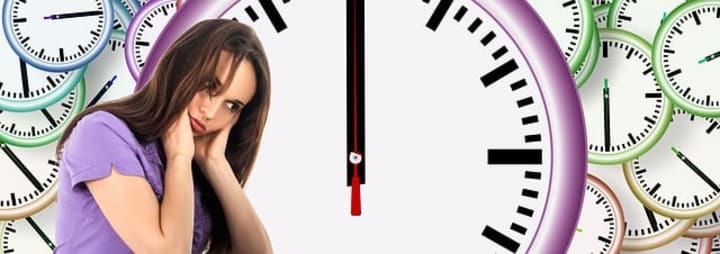The Energy Spoon Analogy: Normal VS Mental Illness
An Analogy To Explain The Difference Of Consumed Energy Between Someone With A Mental Illness And A Normal Person

First off I'd like to start by saying I hate the word normal when referencing people. That being said it is the only word I can come up with when differentiating between someone with a mental illness and someone without a mental illness.
One of the things that I've noticed throughout my many years in my journey with Severe Depression, is that people don't often realize just how much more energy it takes to do even the simplest of things when you suffer from depression.
It can be difficult to explain and I've always found that analogies work best when trying to describe most things that deal with a mental illness. People tend to get a better understanding when using the analogies than just describing straight out how you're feeling.
I have a friend that told me about the spoon analogy when trying to describe the difference it takes in energy for someone with a mental illness to do things vs a normal person or someone without a mental illness.
The Spoon Analogy For A Normal Person

I'm going to start out with the energy consumption and regeneration of a normal person. I will use the same activities for both a normal person and a person with a mental illness.
Please keep in mind that I am generalizing here, the actual amounts will differ from person to person and I am not going for accuracy, I am simply trying to show the difference to give a better understanding.
We'll stick with a normal basic day in both analogies. For the purposes of the analogy, we will say that the max amount of spoons, being at full energy, is 10 spoons.
#1 Beginning the day. Getting up in the morning, having a shower, brushing your teeth, making a coffee, and eating breakfast takes 1 spoon of energy. The normal person is now down to 9 spoons of energy left for the day.
#2 Getting to work and starting your work day. For the purpose of the example, let's say that you have to commute to work. So dealing with the drive and traffic, getting to your place of work, and beginning your work day takes up another spoon. The normal person is now at 8 spoons of energy for the day.
#3 A full work day and getting home. A full day of work at your job, whatever the job may be, including interacting with other people, either other employees or customers/clients. As well as the drive home, we will say takes 3 spoons. The normal person is now at 5 spoons of energy left for the day. By the time they get home, they've used up half of their energy for the day.
Again this one will vary depending on whether the day is more or less stressful than usual but this is just an example.
#4 Responsibilities when you get home and dinner. To keep things simple let's say when you get home you have to take the dog out to let them do their business, and feed them. Then prepare and cook your own meal. That takes 1 spoon. The normal person is now down to 4 spoons of energy left.
Energy Restoring
After eating your meal and cleaning up, you now have your relaxation time. Maybe you're doing some reading, watching TV or a movie, or some other hobby you enjoy working on. During this relaxation time, you regain 1 spoon of energy, putting the normal person back to 5 spoons of energy.
Getting A Good Nights Sleep. After getting a good night's sleep, when you wake up in the morning ready for another day, the remaining 5 spoons of energy are restored and you are back to your 10 spoons of energy to tackle your day with.
The Spoon Analogy For Someone With A Mental Illness

Ok, let's now switch to the energy consumption and regeneration of someone with a mental illness using the same activities we did with the "normal" person.
Again I am generalizing here for the sake of keeping things simple to give you an idea of the difference it takes in energy consumption to do things as well as the energy regeneration.
#1 Beginning the day. Getting up in the morning, having a shower, brushing your teeth, making a coffee, and eating breakfast takes away 2 spoons of energy. The person with a mental illness is now down to 8 spoons of energy left for the day.
I know this seems like an extremely simple and easy task, but sometimes just getting out of bed is a huge challenge.
#2 Getting to work and starting your work day. For the purpose of the example, let's say that you have to commute to work. So dealing with the drive and traffic, getting to your place of work, and beginning your work day takes up 2 spoons. The person with a mental illness is now at 6 spoons of energy for the day.
#3 A full work day and getting home. A full day of work at your job, whatever the job may be, including interacting with other people, either other employees or customers/clients. As well as the drive home, we will say takes 5 spoons. The person with a mental illness is now at 1 spoon of energy left for the day. By the time they get home, they've used up almost all of their energy for the day.
Again this one will vary depending on whether the day is more or less stressful than usual but this is just an example.
#4 Responsibilities when you get home and dinner. To keep things simple let's say when you get home you have to take the dog out to let them do their business, and feed them. Then prepare and cook your own meal. That takes 2 spoons. The person with a mental illness is now down to -1 spoon of energy. They are now borrowing from their reserve energy.
At this point, having used up more energy than they had available to them, they are already exhausted and ready to go to bed.
Energy Restoring
After eating your meal and cleaning up, you now have your relaxation time. Maybe you're doing some reading, watching TV or a movie, or some other hobby you enjoy working on.
However, many people with a mental illness find that they have a loss of interest in the things they used to enjoy. Most likely the person with a mental illness will lay down because they are exhausted or put on some TV that doesn't require a lot of attention.
During this relaxation time, you regain 1 spoon of energy, putting the person with a mental illness to 0 spoons of energy. They are still out of energy but their reserve energy has at least been restored.
Getting A Good Nights Sleep. Ok so here's the kicker for people with a mental illness vs a normal person. Getting a good night's sleep doesn't always and doesn't usually completely restore their energy back to 10 spoons for the next day.
The person with the mental illness might only get 8 spoons of energy back that they are starting the next day out with. That means that by the time they get to the relaxation time they are now at -3 spoons of energy.
The relaxation time brings them back to -2 spoons of energy. So when they go to bed they are still borrowing from the reserved energy.
Again a full night's sleep doesn't completely restore energy. Since the person had to dip into their reserve energy, when they wake up on the third day, they are now starting the day out at only 6 spoons of energy.
I think you can see where this is going. Eventually, the person with a mental illness will wake up the next day with absolutely no energy and have to use up all their reserve energy in one day.
You can only do that for so long before you get to the point that you just can't get out of bed. You need to rest to restore your energy and this can sometimes take days.
The Second Kicker For People With A Mental Illness

Many people are aware that people with a mental illness have a lot less energy than "normal" people, and that it is harder for them to do things. Hopefully, the spoon analogy gives a little bit more of an insight into just how much of a difference and downward slope it can be.
However, there is a second kicker with the energy here that I don't think most people think about or take into consideration.
When dealing with a mental illness, you're often dealing with a lot of negative thinking, which results in a lot of negative emotions. Fighting with your brain is not easy. It takes a lot of energy to fight those thoughts and feelings.
When you don't have the energy to fight those thoughts, especially when it comes to thoughts of suicide and/or self-harm, that's when the person with a mental illness starts to hit the crisis mode.
If you can't fight those thoughts, the thoughts will eventually win out. That's usually when things go south fast and often when the person ends up doing something that will hurt themselves.
Obviously, there are all kinds of factors that would change how much energy you use up in a day and how much you regain. This is just meant to give a general idea of the energy consumption difference.
I hope this article was helpful and informative. Check out my profile for other articles on mental health-related topics.
About the Creator
Richard Bailey
I enjoy writing about many different topics but my main focus is mental health, mental illness, and specifically depression. I have a long personal experience with Severe Treatment-Resistant Depression and Anxiety.






Comments
There are no comments for this story
Be the first to respond and start the conversation.